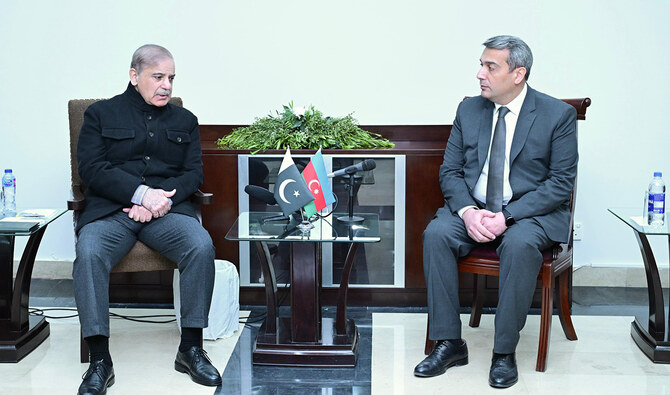ISLAMABAD: Prime Minister Shehbaz Sharif on Thursday publicly praised Army Chief General Asim Munir, saying his collaboration with the government “in the best interests of Pakistan” should serve as a “role model” for future administrations.
Pakistan has a history of coups and extended periods of direct military rule, with the army wielding extraordinary influence in the domains of politics, economy and national security even with civilian governments in office. However, in recent years, the army’s role has come under unprecedented criticism, especially as it has been seen as working to vanquish the popular former prime minister Imran Khan and his Pakistan Tehreek-e-Insaf party. The military says it no longer interferes in political affairs.
During this year’s February 8 general election, independent analysts and critics of the military said it backed the election commission in denying a level-playing field to the PTI, whose candidates still ended up winning the most number of seats but did not have the numbers to form government, which was made by a fragile coalition of parties led by Prime Minister Shehbaz Sharif.
The Sharif administration is widely seen as lacking mass public support and considered close to the currently military set-up.
“There may be examples in the past but what I have seen is that the army chief’s collaboration with the government, in the best interests of Pakistan, is worth watching,” Sharif said as he addressed a ceremony in Islamabad on Thursday.
“I have not witnessed such strong cooperation between the government and constitutional institutions during my entire 40-year political career. The existing relationship between General Munir and the political government should serve as a role model for the future.”
Sharif’s closeness to the military is not new in Pakistani politics. Khan too was also widely believed to have been brought to power in 2018 with the backing of the army, but fell out with top generals and by April 2022 was ousted from the PM’s office in a parliamentary vote of no-confidence. He has since led a defiant campaign against the army, which he accuses of working with his political rivals to unseat him. Both deny the charge.
Tensions between Khan and the army reached a crescendo on May 9 last year when alleged supporters of the PTI attacked and damaged government and military installations. Hundreds of PTI supporters and leaders were arrested following the riots and some continue to remain behind bars as they await trial. The army has also initiated military court trials of at least 103 people accused of involvement in the violence. Many close Khan aides have since deserted him, due to what is widely believed to be pressure from the army, which denies the charge.
Khan has been in jail since last August, though all four convictions handed down to him ahead of a parliamentary election in February have either been suspended or overturned. Khan says all legal cases against him are politically motivated.
Last week, Khan offered to hold “conditional negotiations” with the South Asian nation’s military — if “clean and transparent” elections were held and “bogus” cases against his supporters were dropped.
“We prefer negotiations with the real decision-makers, the military leadership, instead of this puppet government,” Khan said in a statement from prison shared with the media by the PTI.

















